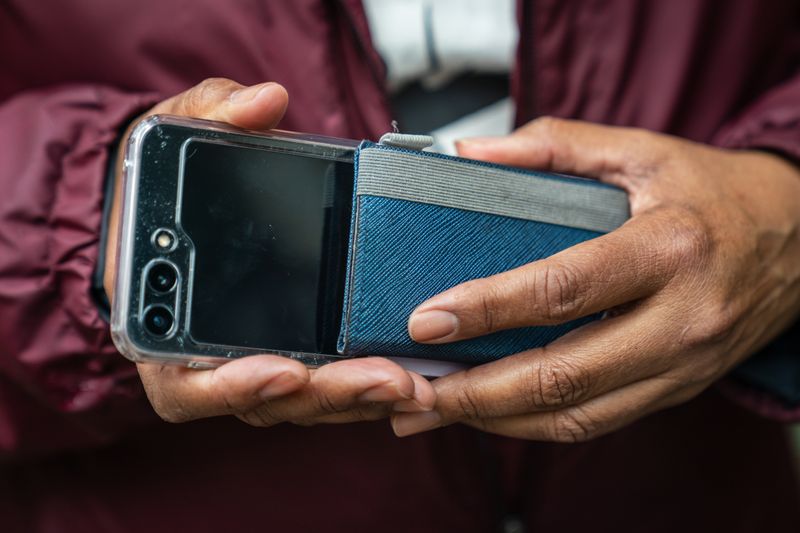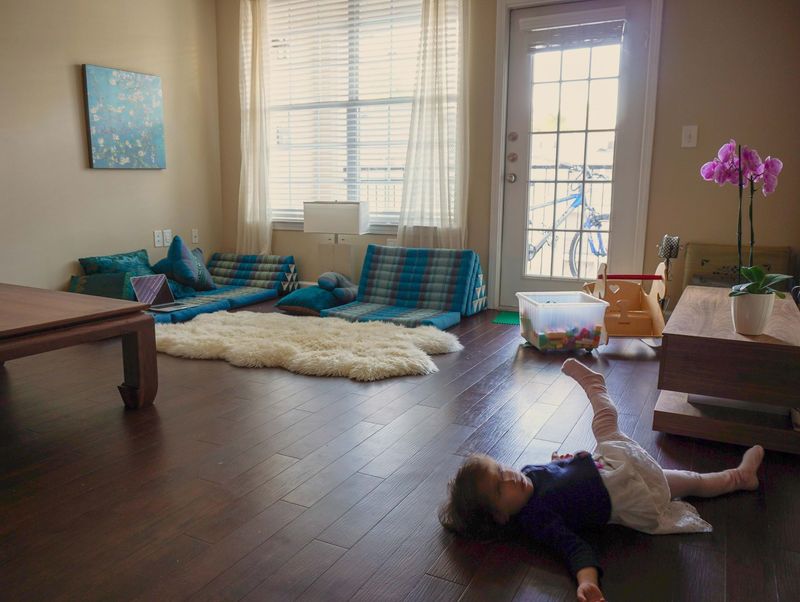As the world rapidly evolves with new trends emerging every day, not everyone is on board with these changes. Baby Bomers, in particular, find themselves struggling to keep up with some of the latest trends that millennials and Gen Z are embracing. From digital innovations to lifestyle changes, the gap between generations is more pronounced than ever.
In this blog post, we’ll explore 14 trends that Baby Boomers just can’t seem to get behind. While these trends might be second nature to the younger generations, they often leave Baby Boomers scratching their heads, questioning the necessity or practicality. Let’s explore these trends and see what makes them so perplexing for our older generation.
1. Cryptocurrency

Cryptocurrency, with its complex algorithms and digital wallets, poses a real puzzle for many Baby Boomers. They grew up with tangible money and physical bank transactions. The concept of digital currency, which exists only online, feels intangible and risky. Moreover, the volatile nature of bitcoin and other cryptocurrencies is unsettling for those accustomed to more stable investments. The technological barrier adds to the confusion, as understanding blockchain technology can be daunting. This trend remains elusive and intimidating, leaving many Baby Boomers preferring traditional banking methods.
2. Online Dating Apps

Online dating has revolutionized the way people meet, but Baby Boomers often struggle to adapt. Accustomed to face-to-face interactions and traditional courtship, swiping right or left feels impersonal. The choice overload on apps like Tinder or Bumble can be overwhelming. Privacy concerns also deter them, as sharing personal details online seems risky. The digital-first approach to relationships conflicts with values of patience and gradual connection. These apps, while convenient for younger folks, leave many Baby Boomers longing for the simplicity of a real-world connection.
3. Remote Work

Remote work, a staple in today’s work culture, isn’t easy for Baby Boomers to embrace. They are used to structured office environments with face-to-face meetings and clear boundaries between work and home. The shift to remote work blurs these lines, creating challenges in maintaining productivity. Technology issues, like video conferencing tools, add to their frustration, making them nostalgic for the days of in-person collaboration. The lack of social interaction and the need for self-discipline can also be isolating and stressful.
4. Social Media Influencers

The rise of social media influencers is baffling to many Baby Boomers. They find it hard to grasp how someone can earn a living by posting photos and videos online. Growing up in an era where job security meant a 9-to-5 job, this new career path seems unrealistic. The distinction between genuine content and advertising can be unclear. Influencer culture, with its focus on self-promotion and consumerism, feels foreign. Baby Boomers often question the authenticity and value of this trend, preferring traditional media’s trusted voices.
5. Plant-Based Diets

Switching to a plant-based diet can be a significant lifestyle change for Baby Boomers. Raised on meat-and-potatoes meals, the concept of eating entirely plant-based feels restrictive. Health benefits are acknowledged, but the lack of familiar flavors and textures can be off-putting. The complexity of plant-based proteins and ingredients often adds to the confusion. Reading labels and finding the right balance of nutrients requires effort and willingness to change long-standing eating habits. Many Baby Boomers find comfort in traditional diets, viewing plant-based options with skepticism.
6. Streaming Services

Streaming services like Netflix and Hulu revolutionized TV watching, but Baby Boomers often feel alienated. The days of flipping through cable channels are replaced with navigating multiple apps and subscriptions. It can be overwhelming to remember which shows are on which platforms. The on-demand nature eliminates the familiarity of scheduled programming. While younger generations enjoy binge-watching, Baby Boomers miss the anticipation of weekly episodes. The fear of missing out on popular shows is real, yet the complexity of accessing them is a deterrent.
7. Smart Home Devices

Smart home devices promise convenience, but for many Baby Boomers, they bring confusion. The idea of controlling home appliances through voice commands or smartphone apps seems futuristic yet daunting. Concerns about privacy and data security are prevalent. The need to learn new technology and constant updates can feel burdensome. Many Baby Boomers prefer manual controls, finding comfort in simplicity. The fear of devices malfunctioning or becoming obsolete is another concern. While smart homes symbolize modern living, the complexity often outweighs the benefits.
8. Fast Fashion

Fast fashion’s rapid cycle of trends is hard for Baby Boomers to keep up with. They grew up valuing quality and durability in clothing, making quick, disposable fashion seem wasteful. The environmental impact and ethical concerns around labor practices add to their apprehension. The pressure to continuously update wardrobes feels unnecessary and extravagant. Many Baby Boomers prefer timeless styles that reflect their personalities. This trend towards constantly changing what’s in style feels foreign and out of sync with their values.
9. Digital Payments

Digital payments, from tap-and-pay to mobile wallets, pose a challenge to Baby Boomers. Used to cash and credit cards, the shift to digital feels insecure. Concerns about fraud and data breaches are prevalent. The need to learn how digital wallets work adds to their reluctance. Many Baby Boomers value the physical transaction process, associating it with control over finances. The rapid pace of technological change can feel overwhelming, leaving them hesitant to adopt these new methods. Trust in traditional banking remains strong.
10. Electric Vehicles

Electric vehicles (EVs) offer environmental benefits, but many Baby Boomers are hesitant. They grew up with gasoline engines and the familiarity of traditional cars. Concerns over charging infrastructure, battery life, and range anxiety are common. The initial cost of EVs seems steep, despite long-term savings. Additionally, understanding new features and technology in EVs can be daunting. The shift towards electric feels like a leap, moving away from the tried-and-true vehicles they know. Yet, as EVs continue to rise, curiosity is slowly growing.
11. Minimalist Living

Minimalist living emphasizes simplicity, but Baby Boomers find it challenging. Accumulating possessions over decades, the idea of decluttering to the bare essentials feels like a loss. Sentimental attachments to items make it hard to let go. The trend towards downsizing and living with less clashes with a lifetime of gathering. While younger generations seek freedom in minimalism, Baby Boomers see it as restrictive. The aesthetics of minimalist design, with its clean lines and sparse decor, often feels sterile and impersonal to them.
12. Gig Economy

The gig economy, with its flexible jobs and freelancing, is perplexing to many Baby Boomers. They value stable, long-term employment, viewing short-term gigs as unreliable. The absence of benefits and job security is a major concern. Learning to navigate online platforms for work can be daunting. While younger generations appreciate the freedom and variety, Baby Boomers worry about financial stability. The shift from traditional employment models to gig-based work feels uncertain. Yet, some are starting to explore it as a post-retirement option, albeit cautiously.
13. Online Education

Online education offers flexibility, but Baby Boomers find it hard to embrace. Used to traditional classroom settings, digital learning feels impersonal. Technical issues and the need to be tech-savvy add to their hesitation. The lack of face-to-face interaction and hands-on experience is a drawback. While e-learning offers convenience, Baby Boomers miss the structure and support of in-person education. The abundance of online courses can also be overwhelming, making it difficult to choose the right one. Despite these hurdles, some are slowly adapting to this trend.
14. Virtual Reality

Virtual reality (VR) offers immersive experiences, yet many Baby Boomers remain skeptical. The technology feels unfamiliar and futuristic. Concerns about motion sickness and difficulty in use are common. Baby Boomers often question the practical applications of VR in daily life. The cost of VR equipment also seems high, considering its novelty. While younger generations embrace VR for gaming and education, Baby Boomers prefer reality in its natural state. The disconnect from the physical world that VR introduces feels unsettling, making adoption slow.

Well, hello there!
My name is Jennifer. Besides being an orthodontist, I am a mother to 3 playful boys. In this motherhood journey, I can say I will never know everything. That’s why I always strive to read a lot, and that’s why I started writing about all the smithereens I came across so that you can have everything in one place! Enjoy and stay positive; you’ve got this!

